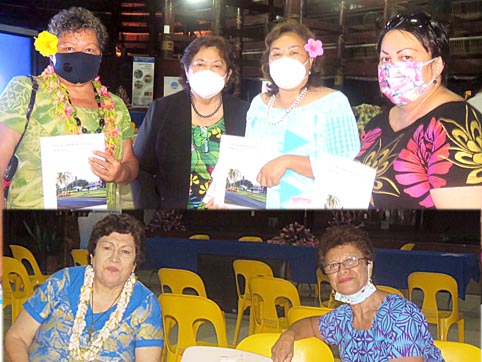I Lesatele
Democracy is a good form of government for Samoa and preferred to any other government.
This is the attitude prevalent among 61 percent of the Samoans who were surveyed in the Pacific Attitude Survey.
Samoa is described as a democratic country which accommodates both western democratic features and traditional values and institutions.
The Pacific Attitude Survey PAS carried out by the NUS in partnership with ANU and SUT launched last week showed Samoans strongly support democracy in contrast to a very low support for authoritarian government under some circumstances.
“ 61% of the Samoan respondents agreed that democracy is always preferred to any kind of government. Of the respondents surveyed 8% preferred an authoritarian government but only under special circumstances,” the Report stated.
It was also found that there was a quite number of Samoans who have the attitude that any kind of government Samoa has does not really matter to them. 25 % of the people surveyed have the attitude -“ for people like me it does not matter what kind of government we have”
It was also noted that women (30%) were more likely to have this attitude than men (20%) . It is suggested in the report that women had this attitude because they “feel relatively disempowered in decision making, at least relative to men.”
It was also found that 58 % of the young people (21 years to 29 ) were less likely to state that “democracy is always preferable to any kind of government” in contrast to those in the older age groups- 30 -59 years (67%) or aged 67plus (69%). “ This finding was the first of several to suggest relatively strong generational differences in political attitudes in Samoa.”
The respondents were also asked whether they were satisfied with the way democracy works in Samoa.
The survey report that “overall the Samoans were satisfied with the way their democracy works.
“ A total of 53% of Samoans reported that they were either fairly satisfied or very satisfied compared with 41% who were not all satisfied or not satisfied.”
It was also found that there was a correlation between economic satisfaction and satisfaction with democracy.
“Accordingly, those rating the overall economic condition of the country positively were significantly more likely to report satisfaction with the way democracy works in Samoa(66%) than those who rated the economic condition negatively (42%). This reflects performance-based support elsewhere in democratic world, which tends to rise and fall with economic performance.”
Attitudes were also sought by the survey on civil and political rights associated with democracies and separation of powers.
The findings show that 86 % of the respondents agreed that people are free to say what they think without fear and 89% agree that people can join any organisation they like without fear.
When asked on how much they agreed to the notion that there is nothing the legal system can do when the government breaks the law-43% of the respondents agreed.
The respondents were also asked whether they agree that when the judges decide important cases they should follow the view of government only 40% agreed.
On the question whether the country is facing a difficult situation it is okay for the government to ignore the law to deal with it 49% agreed to that.
The report states these responses “ indicate a strong popular recognition that Samoa promotes fundamental civil liberties and political rights such as freedom of speech and assembly. An overwhelming majority of respondents agreed that people can say what they think(86% or join any organisation they like (89%) without fear.
“There was also broad popular appreciation of the separation of powers and the ability of courts to hold governments to account with a majority 57% disagreeing with the proposition that when government breaks the law there is nothing the legal system can do. Likewise a clear majority of respondents 60% rejected the notion that judges should follow the views of government when deciding important cases. In the case of invoking government emergency powers ‘when the country is facing a difficult situation; however responses were evenly divided with 49% agreeing that it is okay for the government to ignore the law to deal with it.”
